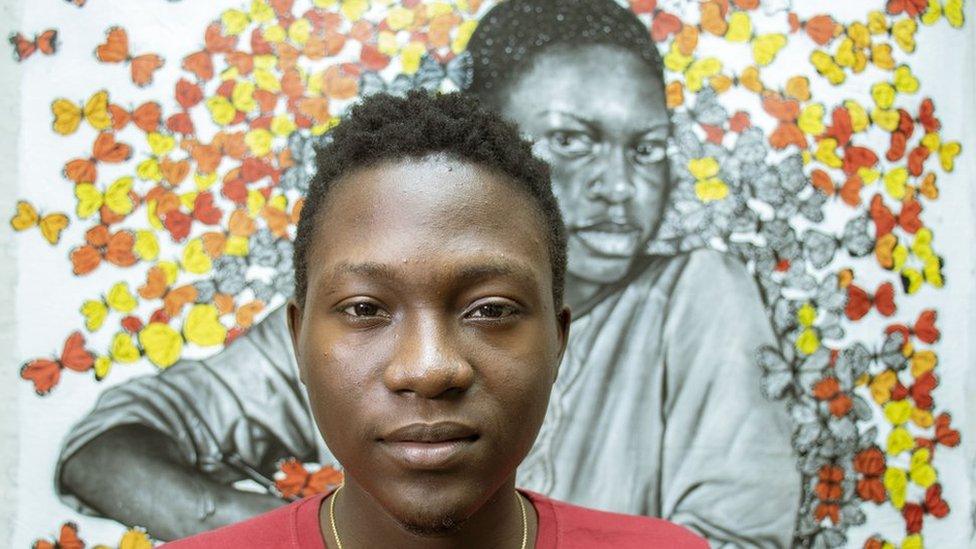Nigeria election 2019: Atiku Abubakar challenges Muhammadu Buhari
- Published
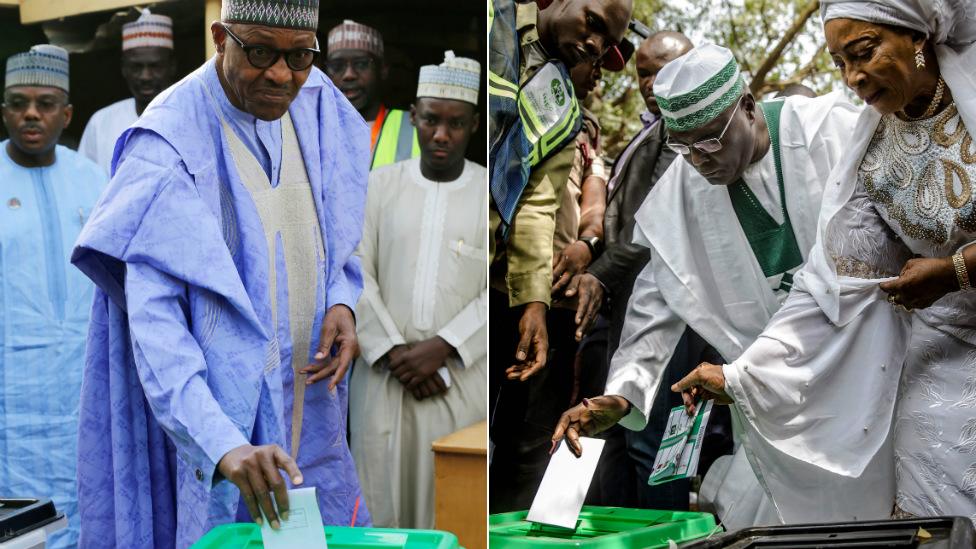
Nigerian president Muhammadu Buhari (L) and his opponent Atiku Abubakar cast their ballots
Votes are being counted in Nigeria's closely-fought general election, with voting hours extended in some places following delays in the morning.
The main challenger to President Muhammadu Buhari, 76, is the former vice president, Atiku Abubakar, 72.
Whoever wins will have to address power shortages, corruption, security threats, and a sluggish economy.
The election had been due to take place a week ago but was delayed at the last minute for logistical reasons.
President Buhari cast his ballot in his hometown of Daura in the northern state of Katsina. Asked if he would congratulate his rival if he lost, he said: "I will congratulate myself."
Reported attacks
About two hours before polls were due to open on Saturday, residents of the town of Maiduguri, the capital of Borno state in the country's north-east reported hearing several blasts and gunfire.
State police said in a statement that there was no threat to public safety. "The gunfire were not targeted at members of the public but was for security purposes," the statement said.
Borno is the birthplace of the Islamist militant group Boko Haram, which had said it planned to disrupt the elections.
In the north-eastern state of Yobe, suspected Islamist militants attacked the town of Geidam, forcing people to flee, the Reuters news agency reported.
Why was the election delayed?
The initial vote was rescheduled in a dramatic press conference in the early hours of Saturday 16 February, just five hours before polls were due to have opened.
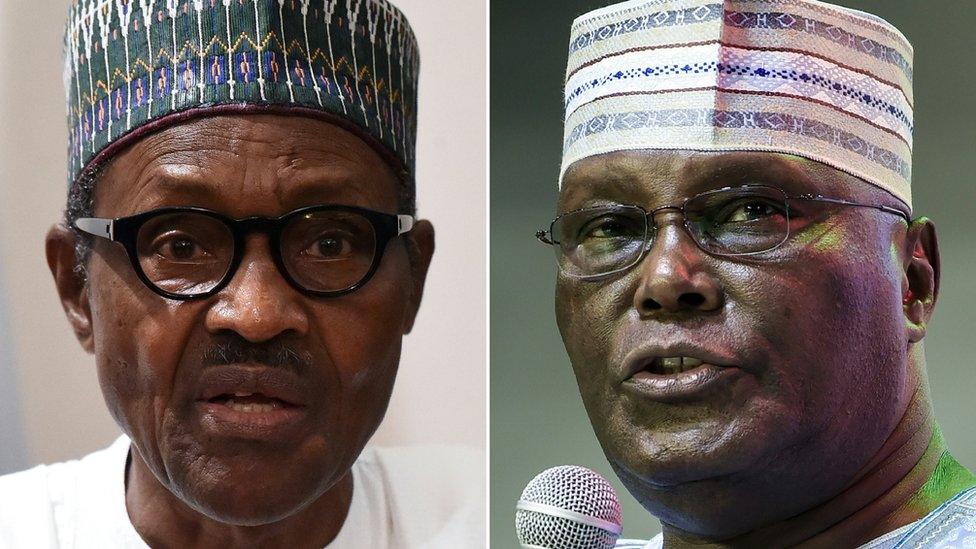
President Muhammadu Buhari (l) is expected to face a strong challenge from Atiku Abubakar (r)
The Independent National Electoral Commission (Inec) has given several reasons for the delay, including attempted sabotage and logistical issues such as bad weather and problems with delivering the ballot papers.
Inec has said that everything is in place for the poll to take place this time round.
How will the election work?
The candidate with the most votes is declared the winner in the first round, as long as that person gains at least 25% of the votes in two-thirds of Nigeria's 36 states.
There are 73 registered candidates in the presidential election, but campaigning has been dominated by the two political giants and the established party machines behind them.
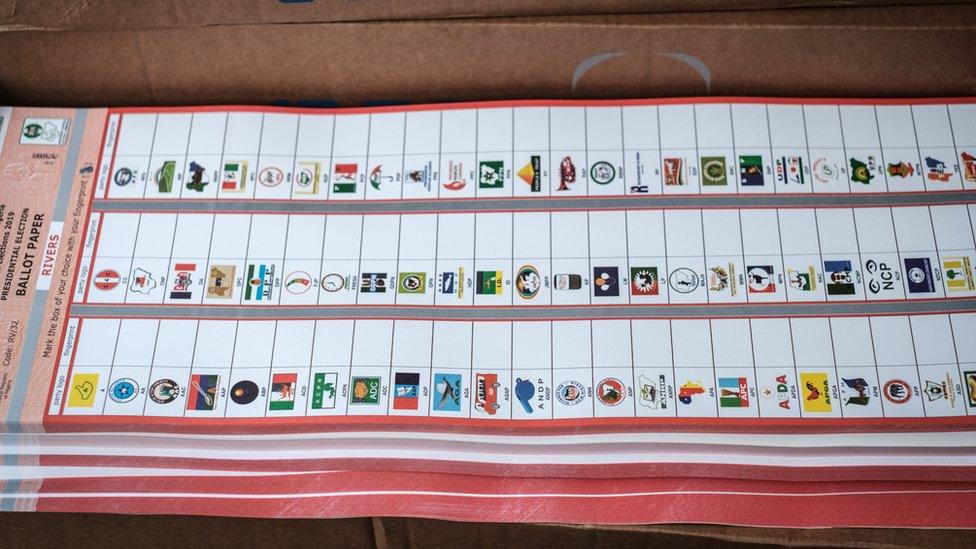
The ballot paper has to be extra long in order to fit on all 73 presidential candidates
The president's All Progressives Congress (APC) has promised to take the country to the "next level", arguing that in his first four-year term Mr Buhari has done a lot of "foundational work" that may not be immediately obvious.
Mr Abubakar and his People's Democratic Party have pledged "to get Nigeria working again", saying that the president has wasted the last four years.
Both men are from the mainly Muslim north of the country. While they are in their 70s, more than half of Nigeria's 84 million registered voters are under 35.
What are the main issues?
Nigeria is Africa's largest oil producer but corruption and a failure to invest the proceeds from the industry have hampered development in the country.
It slipped into a recession in 2016 and a slow recovery has meant that not enough jobs have been created to cope with the large number of young people coming into the employment market. Currently nearly a quarter of the working age population is unemployed.

Election in numbers
73 million have voter's cards
51% of the electorate under the age of 35
73 registered presidential candidates
120,000 polling stations

Mr Buhari has quelled a militant Islamist rebellion in the north-east of the country, but Boko Haram remains active. There has also been an upsurge in violence in the country's Middle Belt as traditional herders and more settled farmers have clashed.
Up until 1999 Nigeria was governed by either short-lived civilian administrations or military rulers. But this year marks 20 years since the return of democracy.
Mr Buhari was elected in 2015 - the first time an opposition candidate had defeated an incumbent to become president.
- Published27 February 2019
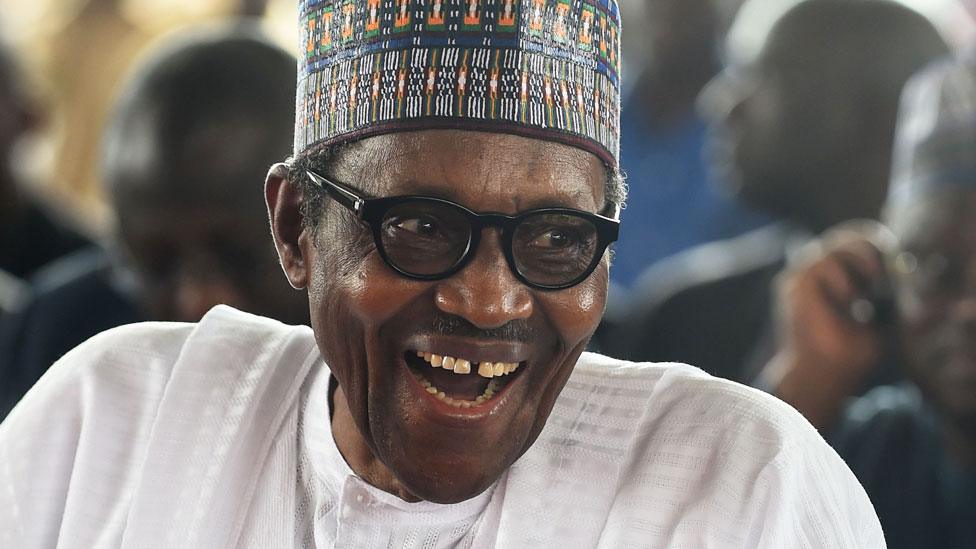
- Published23 February 2023
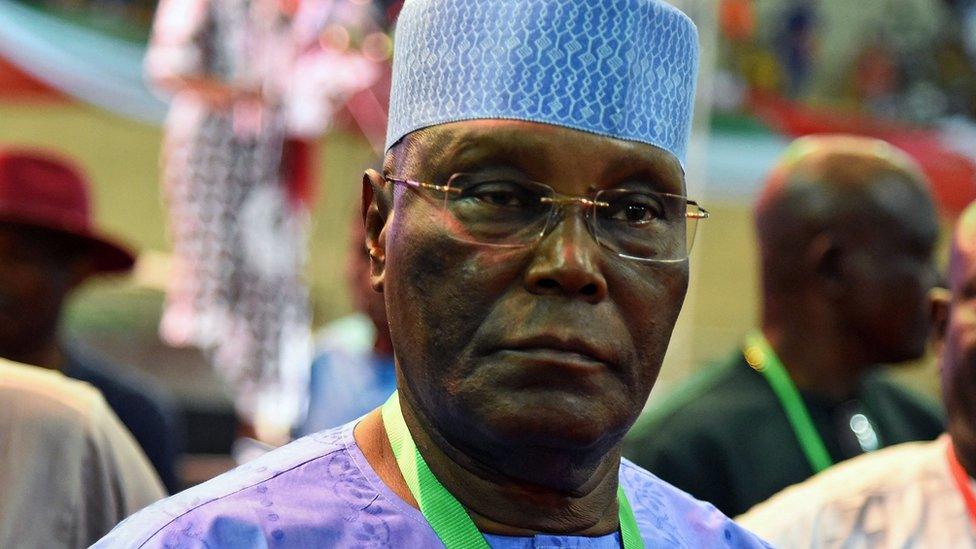
- Published14 February 2019
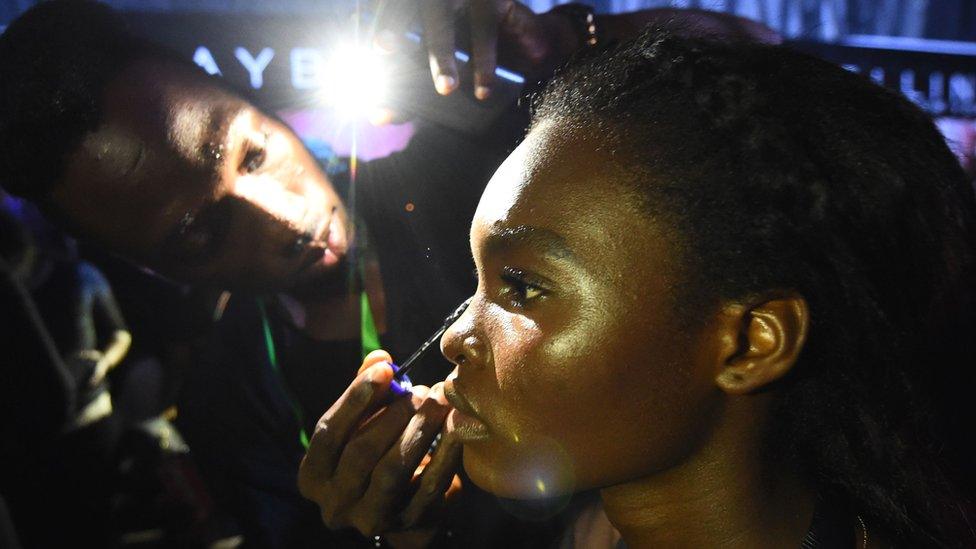
- Published14 February 2019
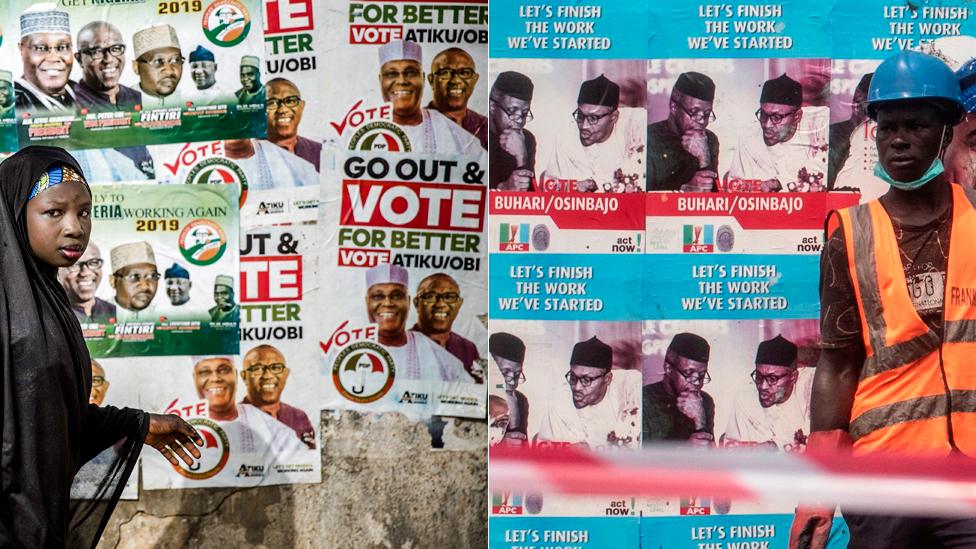
- Published11 February 2019
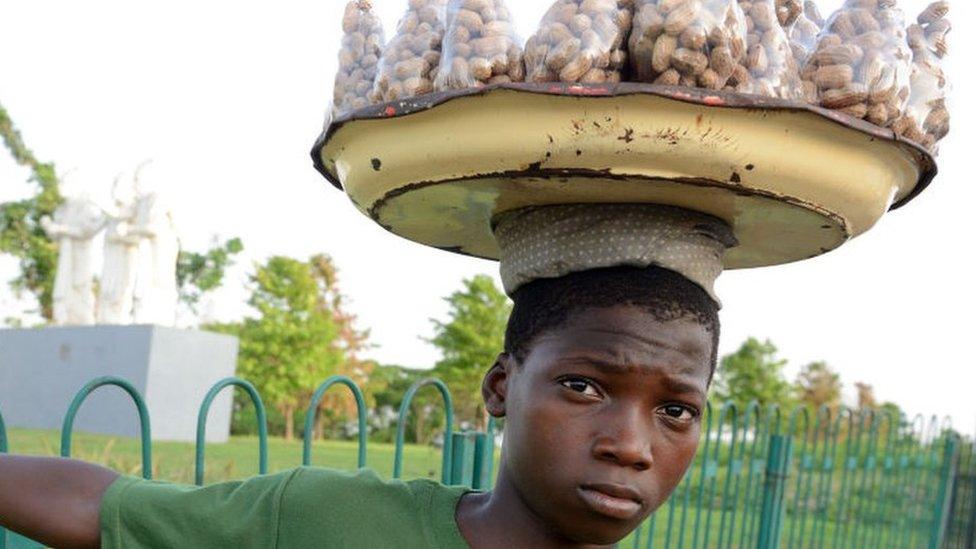
- Published4 February 2019
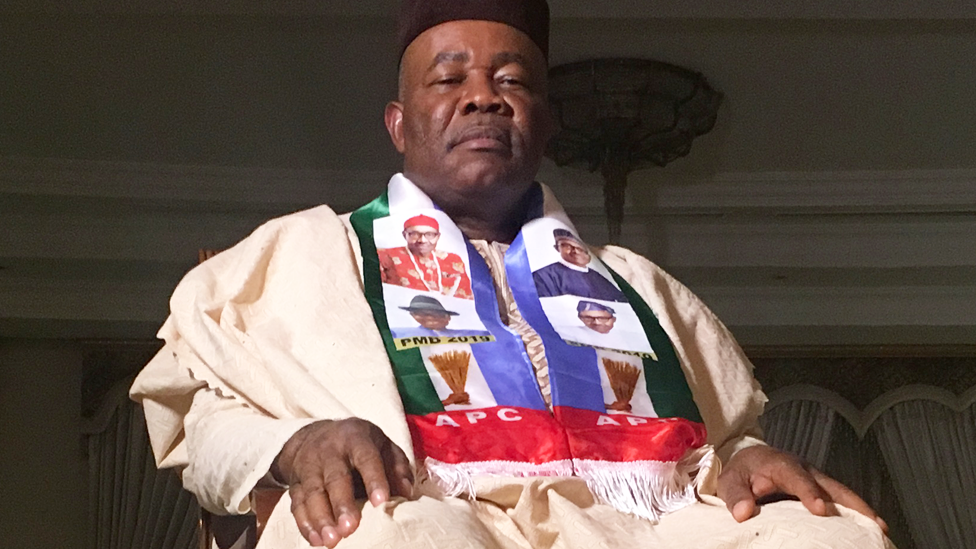
- Published14 February 2019
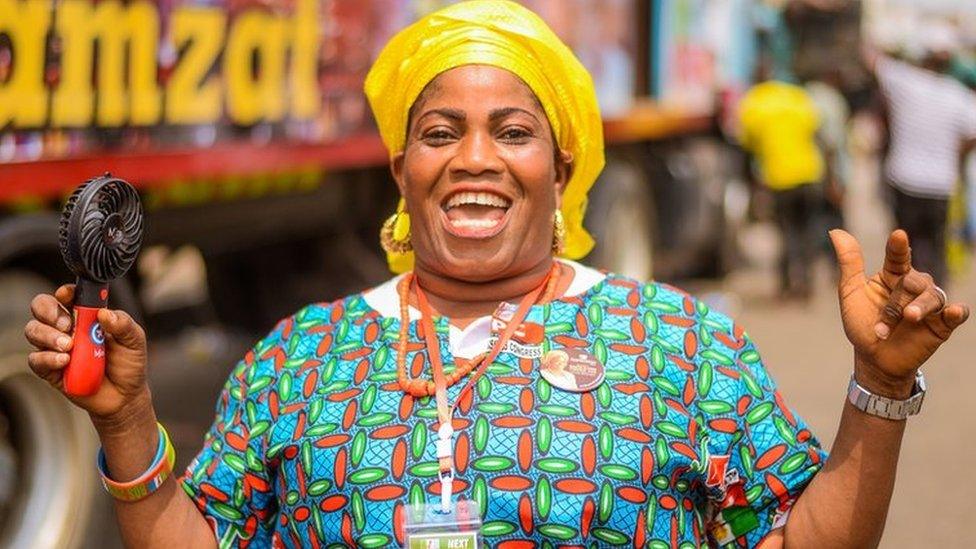
- Published10 February 2019
